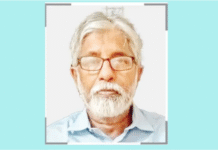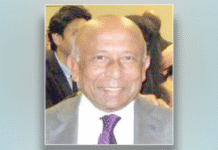 The Election Commission (EC) has planned to weaken further its power over registered political parties by allowing them to have associate bodies again and bypass grassroots recommendations for nominating candidates for parliamentary polls.
The Election Commission (EC) has planned to weaken further its power over registered political parties by allowing them to have associate bodies again and bypass grassroots recommendations for nominating candidates for parliamentary polls.
In its electoral reform proposals that have recently been sent to the law ministry to get them translated into laws, the EC has once again allowed political parties to have associate bodies of students, professionals and employees of state-owned entities.
In the move, it has also proposed to scrape the practice of the grassroots units sending lists of prospective candidates to their parties’ parliamentary boards based on which the parties would nominate their candidates for the polls.
This provision was introduced to instil democratic practice in the parties and stop nomination trading, as before that, people with money and no political background could easily obtain party tickets.
The rule was introduced in 2008 so that the parliamentary boards of parties could not pick anybody beyond the grassroots units’ lists. In 2010, the AL-led government relaxed it stating that the boards had to consider the list and make their choices.
But if the provision is totally withdrawn by amending the Representation of the People Order (RPO), money will rule the nomination game. The parliamentary boards will have a free ride in their choices.
Currently, violation of both the above-mentioned provisions could have a party’s registration with the EC cancelled.
“But after the scrapping of the punitive provisions, the election commission will have nothing to do if the political parties did not follow the rule for considering grassroots panels,” former chief election commissioner ATM Shamsul Huda, who led the EC when the sweeping electoral reforms were brought in 2008, told The Daily Star yesterday.
Asked Brig Gen (retd) M Sakhawat Hussein, who was an election commissioner in Huda-led EC, said if the provision was made ineffective, the culture of “nomination trading” would “definitely” return.
According to Huda and Sakhawat, the aim of the provision was also to ensure democratic practice within the parties by empowering the grassroots levels of the parties.
Contacted over the phone, election commissioners Shah Newaz and Abu Hafiz said they could not recall what they had proposed for.
Another Election Commissioner Abdul Mubarak, however, confirmed that they had made such proposals.
The Daily Star has obtained copies of the proposals.
Moreover, if the RPO is amended in line with the proposals, registered political parties will also get back unlimited freedom to form organisations as their affiliated or associated bodies comprised of teachers and students of any educational institutions or the employees of any financial, commercial or industrial institution and of people in any profession.
In the 2008 reforms, new legal provisions were introduced making it mandatory for a political party to include a provision in its charter imposing restriction on formation of any affiliated or associated body.
The aim of the move was to free educational and financial institutions from party politics.
After the enactment of the reforms, the Awami League, BNP and other political parties had to sever link with some of their associate bodies to get registered with the EC.
But after the deletion of this provision, a political party will need not to ensure election of members to its committees at all levels including the central committee.
Moreover, a party will not be required to achieve the goal of keeping 33 percent positions for women in all committees by the year 2020.
In exchange for all the above, the EC has proposed to introduce a new provision which makes it mandatory for a registered political party to maintain a functional central office and requires number of administrative offices at district and upazila levels.
In case of violating the rule, a party may lose its registration with the EC.
In defence of the move, the EC in the proposal said it would contribute to bringing dynamism in the politics.
Source: The Daily Star









